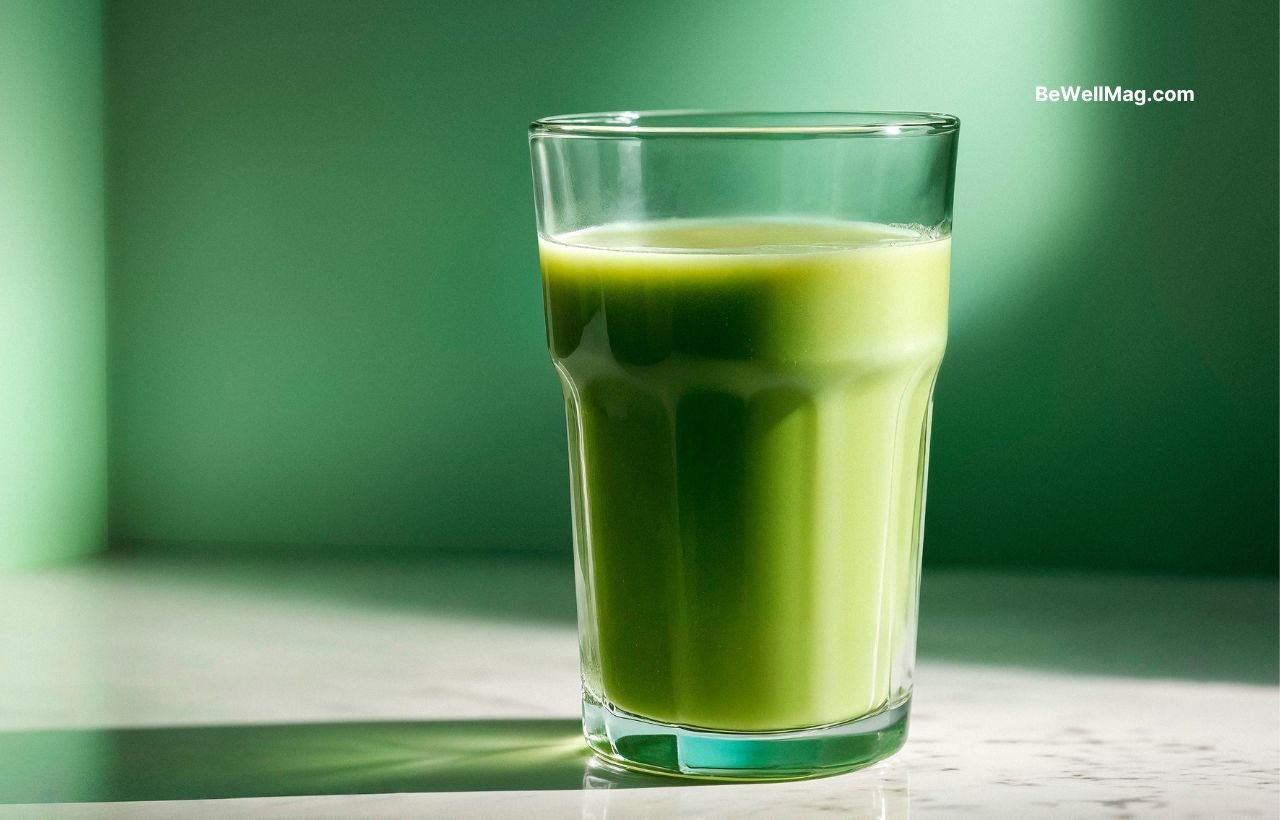Now Reading: Is Celery Juice Good for You? A Guide to Its Benefits & Risks
- 01
Is Celery Juice Good for You? A Guide to Its Benefits & Risks

Is Celery Juice Good for You? A Guide to Its Benefits & Risks
Celery juice: Uncover how potent antioxidants, digestion boost, improved hydration and balanced blood sugar offer health benefits & risks. Learn key tips now.!!
Table of Contents
Celery juice has made waves in the wellness world, captivating health enthusiasts everywhere. With bold claims ranging from supercharged antioxidants to improved digestion and balanced blood sugar, many are curious—can this simple green drink really transform your health?
Today, we’ll explore the concrete benefits, nutritional facts, potential risks, preparation methods, and who might need to steer clear. Whether you’re considering adding it to your daily regime or just curious about the science behind the trend, this comprehensive guide is here to set the record straight.
The Multifaceted Benefits of Celery Juice
Celery juice isn’t just another trendy beverage. Its benefits span a wide range of health improvements that might contribute to your overall wellbeing:
1. Powerful Antioxidant Boost
Celery juice is rich in antioxidants such as flavonoids and polyphenols. These potent compounds help neutralize free radicals in your body, protecting cells from damage and potentially reducing inflammation. This antioxidant push is essential for maintaining long-term cellular health and fighting off oxidative stress.
2. Relieves Heartburn and Soothes Digestion
Many individuals turn to celery juice for heartburn relief. With natural anti-inflammatory properties, it helps reduce stomach acid and calms the digestive tract. Furthermore, its high water content aids in digestion by easing constipation. For those who experience frequent acid reflux, incorporating celery juice may provide a gentle, yet effective, natural remedy.
3. Aids in Constipation and Inflammatory Bowel Health
Regular consumption can also help stimulate bowel movements, thanks to its mild laxative effects and fiber content—especially if you opt for unstrained juice. These qualities can benefit individuals dealing with constipation or even those suffering from mild inflammatory bowel conditions by reducing irritation and promoting smoother digestion.
4. Exceptional Hydration
Being approximately 95% water, celery juice offers excellent hydration benefits. It replenishes fluids and supports electrolyte balance, making it a refreshing addition to your wellness routine, especially post-workout or on a hot day.
5. Balances Blood Sugar Levels
Celery contains bioactive compounds like luteolin that may assist in moderating blood sugar levels. For individuals with prediabetes or those at risk of blood sugar spikes, the natural properties of celery juice might help maintain a more stable glucose balance.
6. Enhances Oral and Skin Health
The anti-inflammatory and antimicrobial properties of celery juice do more than just help internally—they can also promote oral health by reducing plaque buildup and soothing irritated gums. Additionally, the hydration and nutrients delivered by this drink contribute to healthier, glowing skin by supporting collagen production and reducing inflammation.
Nutrition Facts: What’s in a Glass of Celery Juice?

Celery juice delivers a concentrated burst of essential vitamins and minerals, making it a nutritious choice for daily hydration. An 8-ounce serving typically includes:
- Calories: Around 33–40 calories
- Carbohydrates: Approximately 7–8 grams
- Fiber: 2–4 grams (depending on whether the pulp is included)
- Protein: Roughly 1–2 grams
- Sodium: About 190–230 mg
- Potassium: 600–630 mg
- Key Vitamins & Minerals: Vitamin K, Vitamin A, Vitamin C, folate, and various antioxidants
This nutritional profile supports both hydration and metabolic functions, contributing to overall wellness when combined with a balanced diet.
Risks and Considerations
While there are numerous benefits, it’s equally important to be aware of potential risks associated with consuming celery juice daily:
- Digestive Upset: Overconsumption may lead to diarrhea or abdominal cramping due to its natural laxative properties.
- Sodium Content: Celery juice is naturally higher in sodium, which might not be suitable for those on a strict low-sodium diet.
- Allergic Reactions: Some individuals may be allergic to celery, which can cause oral itching, swelling, or skin reactions.
- Photosensitivity: Celery contains psoralens that could increase your skin’s sensitivity to sunlight, potentially heightening the risk of sunburn.
As with any health trend, moderation is key, and it’s best to start with small amounts to see how your body responds.
How to Make Celery Juice at Home
Preparing fresh celery juice is simple and gives you control over the ingredients. Follow these clear steps:
- Select Fresh Celery: Choose a bunch of crisp, organic celery for the best flavor and nutrient content.
- Wash Thoroughly: Rinse the celery stalks under running water to remove any dirt or pesticides.
- Chop and Blend: Chop the celery into manageable pieces and place them in a blender. Add a small amount of water if necessary to aid blending.
- Strain (Optional): For a smoother juice, strain the blended mixture through a fine mesh sieve or cheesecloth to remove excess pulp.
- Serve Immediately: Enjoy your celery juice fresh to maximize nutrient intake, or store in a sealed container in the refrigerator for up to 24 hours.
For those who prefer convenience, many opt for commercially prepared celery juice—but making it at home allows you to be sure of its purity.
Who Should Avoid Celery Juice?
Although celery juice offers many health benefits, it is not for everyone:
- Individuals with Celery Allergies: If you have a known allergy to celery, avoid the juice to prevent adverse reactions.
- People on Low-Sodium Diets: Due to its naturally high sodium content, those who must monitor sodium intake should consume it sparingly.
- Individuals with Specific Gastrointestinal Disorders: People with severe gastrointestinal issues, like advanced inflammatory bowel disease, might find its laxative effect too harsh.
- Pregnant or Nursing Women: It’s wise to consult with a healthcare provider before adding celery juice to your diet, as its effects during pregnancy or lactation aren’t fully understood.
Always consider your unique health needs, and consult your doctor if you have any concerns about introducing celery juice into your routine.
Conclusion
Celery juice is more than just a trendy green beverage—it’s a nutrient-packed drink that offers a range of benefits from antioxidant support and improved digestion to better hydration and balanced blood sugar. However, potential risks like digestive upset or high sodium levels mean that moderation and careful consideration are essential. Whether you decide to whip up a fresh glass at home or opt for a trusted commercial product, being informed will help you decide if celery juice is the right choice for your health.











